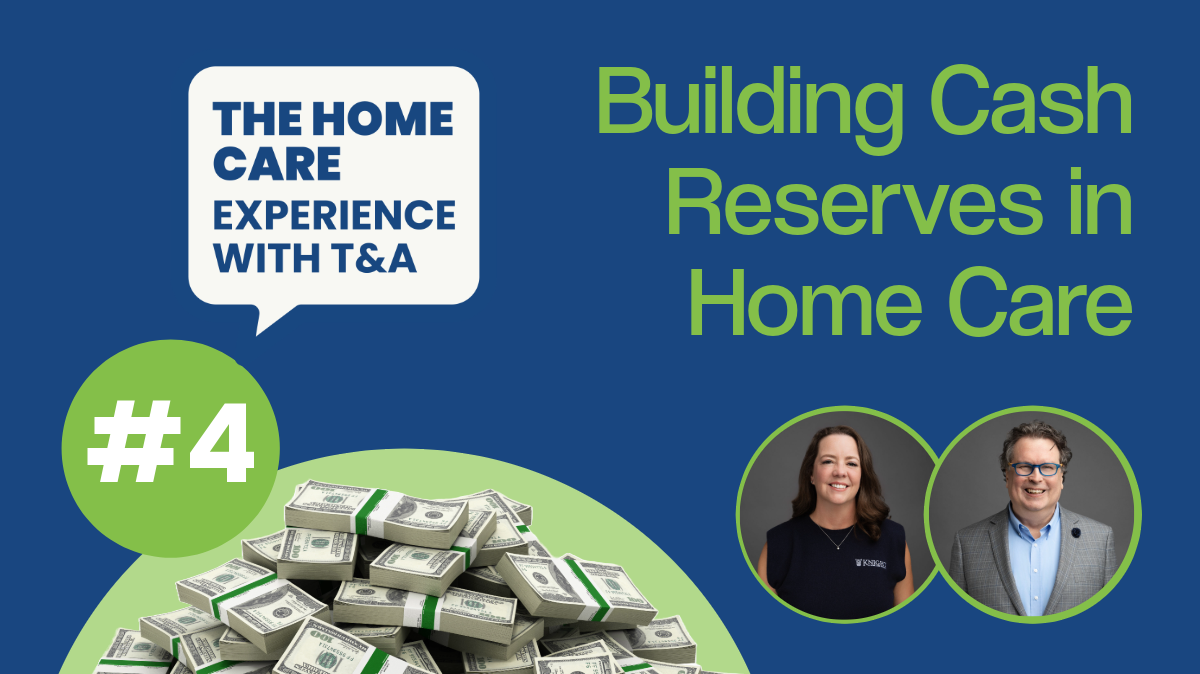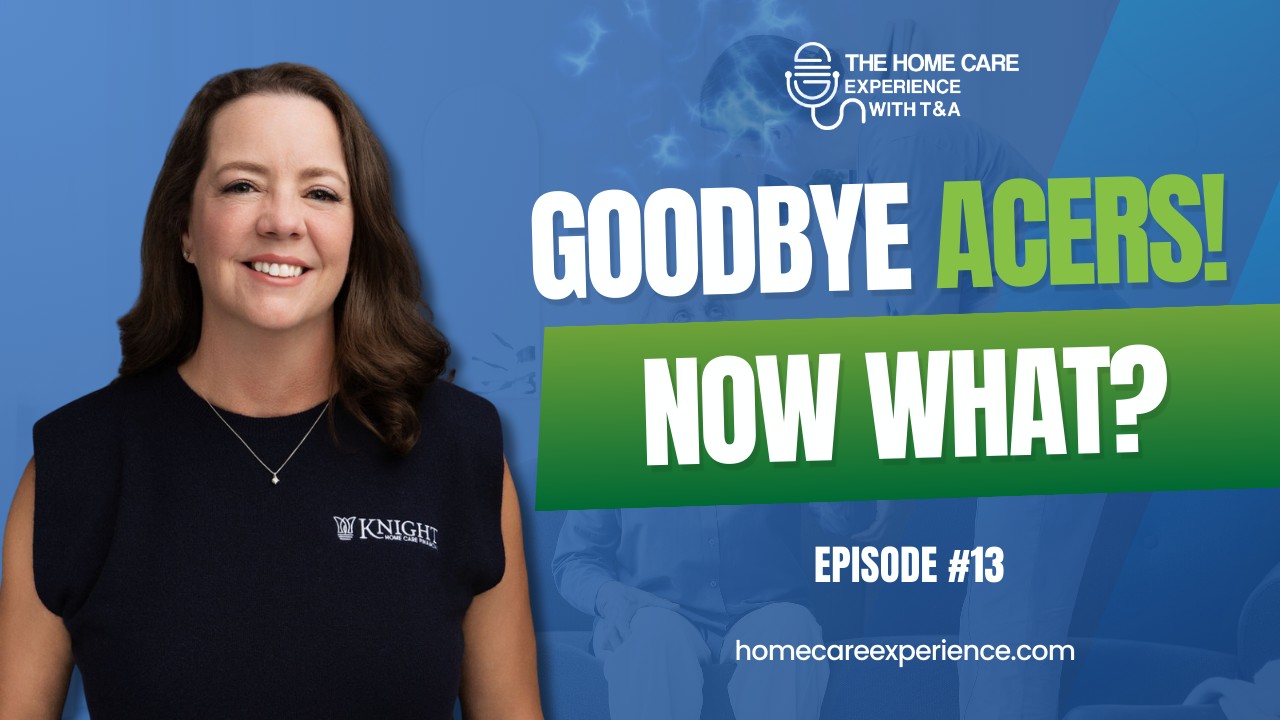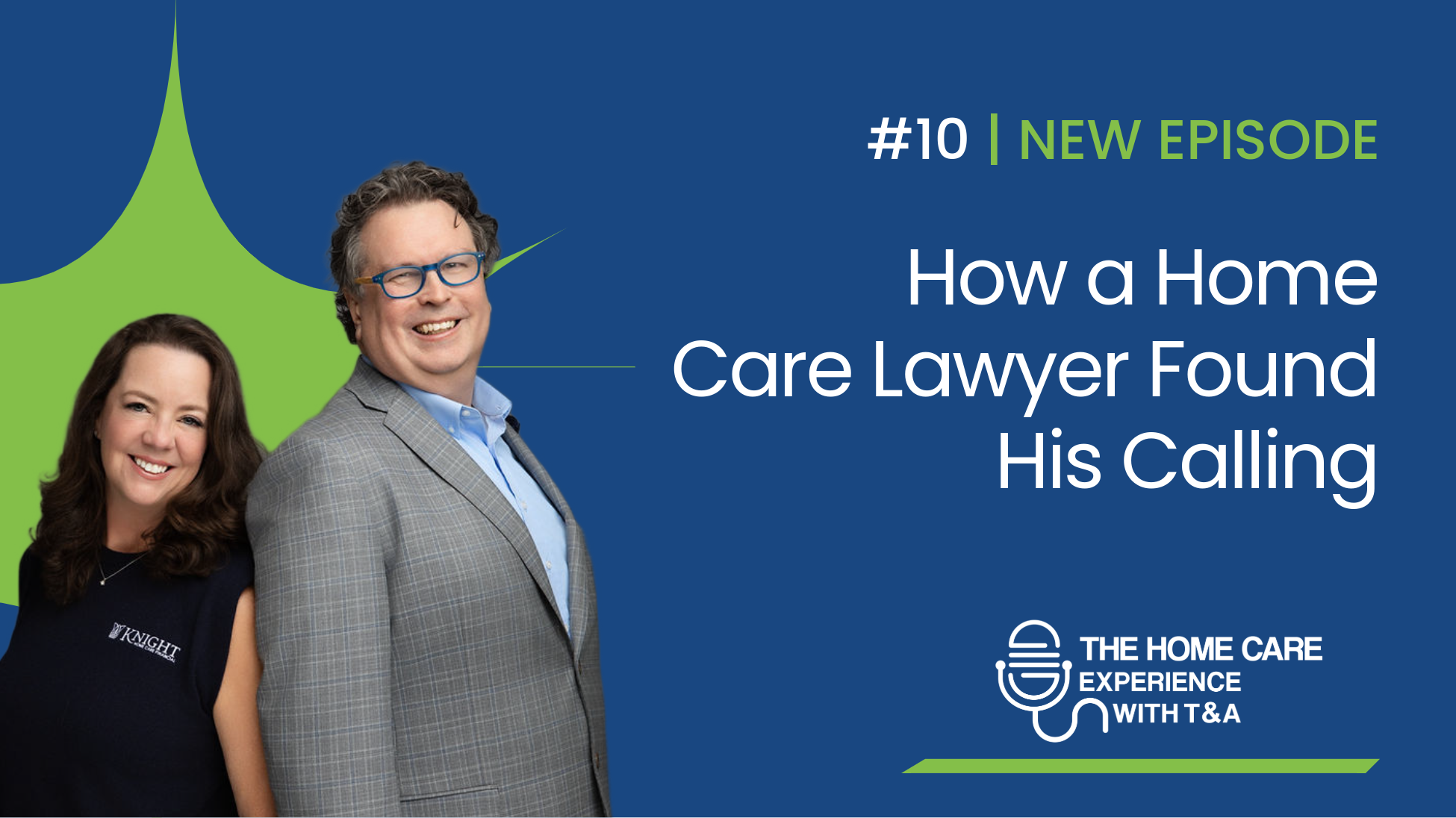Building Cash Reserves in Home Care: A Must for Stability
In this episode of The Home Care Experience with T&A, Amy Taylor and Troy Brooks tackle one of the most critical financial topics in the home care industry: building cash reserves. Whether you’re a startup agency navigating the early stages or an established provider facing financial hurdles, having a strong financial cushion can be the difference between thriving and struggling.
The Financial Reality of Home Care Agencies
Many home care agencies, especially startups, operate on razor-thin margins. From licensing and Medicare certification to managing payroll while waiting for reimbursements, it can take months before an agency sees its first payment. The financial strain is real, and the question many providers ask is: How do I save up to avoid living payroll to payroll?
Why Cash Reserves Matter
For home care business owners, unexpected financial disruptions are inevitable. Delays in billing, regulatory changes, and even provider revalidations can halt cash flow overnight. Without a cash reserve, making payroll, covering overhead, and maintaining operational stability becomes a serious challenge.
Amy and Troy stress the importance of having at least one full payroll’s worth of cash in reserve—then building toward a full month of expenses. While a six-month cushion is ideal in theory, in reality, home care businesses should focus on progressive, realistic savings goals.
Strategies to Build Financial Stability
1. Avoid Predatory Lending Options
Many new providers are tempted by quick cash options like payday loans or merchant cash advances. These often come with exorbitant interest rates (30-40%), making them a financial trap that drains revenue over time. Instead, the hosts recommend exploring more sustainable solutions.
2. Secure a Line of Credit Early
One of the best ways to safeguard against financial shortfalls is by securing a line of credit before you need it. Many banks will extend a small line of credit to a new business, and as the business demonstrates responsible financial management (using and repaying small amounts regularly), that credit line can grow. Unlike traditional loans, a line of credit only accrues interest on the amount used, making it a flexible and cost-effective option.
3. Explore SBA Loans and Grants
For those who qualify, SBA (Small Business Administration) loans can be a viable option for securing long-term funding. However, they require extensive documentation, including business plans and financial projections. Additionally, minority-owned, woman-owned, and veteran-owned businesses should explore grant opportunities at the local, state, and federal levels.
4. Maintain Diligent Financial Planning
Amy emphasizes that home care owners must be intentional about not spending every dime they earn. Instead, business owners should:
- Allocate a portion of each reimbursement check into a reserve fund.
- Plan for seasonal fluctuations and regulatory changes that could impact cash flow.
- Be strategic about owner distributions, ensuring the business remains financially healthy before drawing excessive profits.
5. Know Your Payer Mix
Not all revenue is created equal. Some payer sources reimburse at much lower rates, and a high volume of low-paying clients can create a cash crunch. Troy shares an example of a provider who took on too many WellMed clients, leading to a surge in patients but a steep decline in financial health. Understanding the payer mix and adjusting accordingly is key to maintaining strong revenue streams.
6. Prioritize Payroll Taxes
A critical financial responsibility for agency owners is paying payroll taxes on time. Unlike other business expenses, unpaid payroll taxes create personal liability for business owners, meaning the IRS can come after individuals for outstanding debts. Avoiding payroll tax issues is non-negotiable for financial security.
Lessons from the Field
Troy and Amy share real-world examples of providers who successfully built financial stability by making smart financial decisions. The common theme? Business owners who plan ahead, spend wisely, and secure financing before it’s needed are the ones who weather financial storms the best.
Final Takeaways
- Start small: Focus on saving for at least one payroll, then build toward a full month of expenses.
- Secure funding early: The best time to apply for credit is when you don’t need it.
- Stay proactive: Monitor your payer mix and financial health to avoid unexpected shortfalls.
- Invest in expert guidance: Whether it’s a financial consultant or a billing specialist, strategic help can save you money in the long run.
With smart planning and disciplined financial management, home care businesses can achieve financial stability, allowing them to focus on what matters most—providing quality care to clients.
Subscribe & Connect
Catch more insights from Amy Taylor and Troy Brooks on The Home Care Experience with T&A! Subscribe on your favorite podcast platform, leave a review, and share with your network to help more home care professionals navigate the financial challenges of the industry.
For resources, show notes, and updates, visit https://homecareexperience.com.
Let’s make a difference together!




